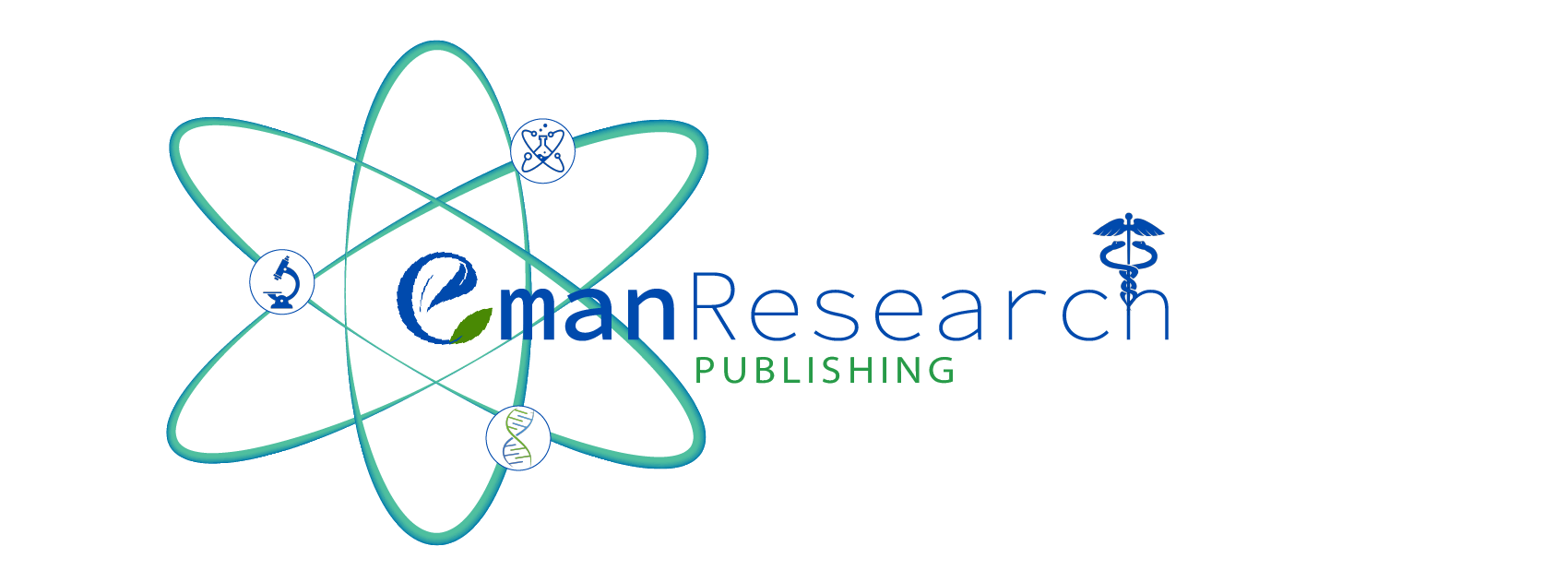Drug Repositioning and Response Detection Based on Randomized Control Trials for Cancer Treatment - A Review
Aman Chandrakar 1, Chetan Kumar Sonkar 2
Integrative Biomedical Research 7(2) 1-13 https://doi.org/10.25163/angiotherapy.729394
Submitted: 28 October 2023 Revised: 03 December 2023 Published: 04 December 2023
The cancer treatment will be accelerated through drug repositioning.
Abstract
Drug repositioning is vital in cancer treatment, offering a swift alternative to identify existing drugs repurposable for cancer treatment, bypassing the lengthy and costly traditional drug development process. This approach not only saves resources for the pharmaceutical sector and healthcare systems but also accelerates the discovery of new drugs. Overcoming challenges like data integration and patient classification is crucial in drug repositioning, where methodological advancements utilizing randomized control trials (RCTs) become essential. RCTs provide a systematic way to assess medication efficacy in diverse cancer subpopulations, enhancing the credibility of drug repositioning outcomes. The current study integrates RCTs with advanced data analytics and machine learning to establish a Bayesian Network response detection based on randomized control (BNRD-RC). This approach allows researchers to identify promising drug candidates, predict patient responses, and optimize treatment plans by analyzing diverse datasets, including genomes, proteomics, and clinical records. Beyond personalized treatment, drug repositioning explores medication synergy and combination therapy for rare cancer types. Simulation analysis significantly aids in validating the efficacy and safety of repositioned drugs. Through simulations of clinical scenarios and treatment outcomes, researchers can assess the impact of drug repositioning on patient survival, quality of life, and healthcare costs.
Keywords: Drug Repositioning, Response Detection, Randomized Control, Cancer Treatment
References
Badkas, A., De Landtsheer, S., & Sauter, T. (2021). Topological network measures for drug repositioning. Briefings in bioinformatics, 22(4), bbaa357.
Begley, C. G., Ashton, M., Baell, J., Bettess, M., Brown, M. P., Carter, B., ... & Sullivan, M. (2021). Drug repurposing: Misconceptions, challenges, and opportunities for academic researchers. Science Translational Medicine, 13(612), eabd5524.
Cheng, F., Hong, H., Yang, S., & Wei, Y. (2017). Individualized network-based drug repositioning infrastructure for precision oncology in the panomics era. Briefings in bioinformatics, 18(4), 682-697.
Cheng, F., Lu, W., Liu, C., Fang, J., Hou, Y., Handy, D. E., ... & Loscalzo, J. (2019). A genome-wide positioning systems network algorithm for in silico drug repurposing. Nature communications, 10(1), 3476.
Hernández-Lemus, E., & Martínez-García, M. (2021). Pathway-based drug-repurposing schemes in cancer: The role of translational bioinformatics. Frontiers in Oncology, 10, 605680.
Ioakeim-Skoufa, I., Tobajas-Ramos, N., Menditto, E., Aza-Pascual-Salcedo, M., Gimeno-Miguel, A., Orlando, V., ... & Vicente-Romero, J. (2023). Drug Repurposing in Oncology: A Systematic Review of Randomized Controlled Clinical Trials. Cancers, 15(11), 2972.
Jin, G., Fu, C., Zhao, H., Cui, K., Chang, J., & Wong, S. T. (2012). A novel method of transcriptional response analysis to facilitate drug repositioning for cancer therapy. Cancer research, 72(1), 33-44.
Jin, M. Z., & Jin, W. L. (2020). The updated landscape of tumor microenvironment and drug repurposing. Signal transduction and targeted therapy, 5(1), 166.
Kingsmore, K. M., Grammer, A. C., & Lipsky, P. E. (2020). Drug repurposing to improve treatment of rheumatic autoimmune inflammatory diseases. Nature Reviews Rheumatology, 16(1), 32-52.
Lee, H., Kang, S., & Kim, W. (2016). Drug repositioning for cancer therapy based on large-scale drug-induced transcriptional signatures. PloS one, 11(3), e0150460.
Lyne, S. B., & Yamini, B. (2021). An alternative pipeline for glioblastoma therapeutics: a systematic review of drug repurposing in glioblastoma. Cancers, 13(8), 1953.
Mousavi, S. Z., Rahmanian, M., & Sami, A. (2020). A connectivity map-based drug repurposing study and integrative analysis of transcriptomic profiling of SARS-CoV-2 infection. Infection, Genetics and Evolution, 86, 104610.
Nagaraj, A. B., Wang, Q. Q., Joseph, P., Zheng, C., Chen, Y., Kovalenko, O., ... & DiFeo, A. (2018). Using a novel computational drug-repositioning approach (DrugPredict) to rapidly identify potent drug candidates for cancer treatment. Oncogene, 37(3), 403-414.
Nowak-Sliwinska, P., Scapozza, L., & i Altaba, A. R. (2019). Drug repurposing in oncology: Compounds, pathways, phenotypes and computational approaches for colorectal cancer. Biochimica et Biophysica Acta (BBA)-Reviews on Cancer, 1871(2), 434-454.
Orecchioni, S., Roma, S., Raimondi, S., Gandini, S., & Bertolini, F. (2019). Identifying drug repurposing opportunities in oncology. The Cancer Journal, 25(2), 82-87.
Pushpakom, S., Iorio, F., Eyers, P. A., Escott, K. J., Hopper, S., Wells, A., ... & Pirmohamed, M. (2019). Drug repurposing: progress, challenges and recommendations. Nature reviews Drug discovery, 18(1), 41-58.
Reay, W. R., & Cairns, M. J. (2021). Advancing the use of genome-wide association studies for drug repurposing. Nature Reviews Genetics, 22(10), 658-671.
Scherman, D., & Fetro, C. (2020). Drug repositioning for rare diseases: Knowledge-based success stories. Therapies, 75(2), 161-167.
Shukla, R., Henkel, N. D., Alganem, K., Hamoud, A. R., Reigle, J., Alnafisah, R. S., ... & Mccullumsmith, R. E. (2021). Signature-based approaches for informed drug repurposing: targeting CNS disorders. Neuropsychopharmacology, 46(1), 116-130.
Tanoli, Z., Vähä-Koskela, M., & Aittokallio, T. (2021). Artificial intelligence, machine learning, and drug repurposing in cancer. Expert opinion on drug discovery, 16(9), 977-989.
Vivarelli, S., Candido, S., Caruso, G., Falzone, L., & Libra, M. (2020). Patient-derived tumor organoids for drug repositioning in cancer care: a promising approach in the era of tailored treatment. Cancers, 12(12), 3636.
Yang, C., Zhang, H., Chen, M., Wang, S., Qian, R., Zhang, L., ... & Wang, H. (2022). A survey of optimal strategy for signature-based drug repositioning and an application to liver cancer. Elife, 11, e71880.
Zhang, C., Leng, L., Li, Z., Zhao, Y., & Jiao, J. (2020). Identification of biomarkers and drug repurposing candidates based on an immune-, inflammation-and membranous glomerulonephritis-associated triplets network for membranous glomerulonephritis. BMC Medical Genomics, 13, 1-11.
Zhou, X., Dai, E., Song, Q., Ma, X., Meng, Q., Jiang, Y., & Jiang, W. (2020). In silico drug repositioning based on drug-miRNA associations. Briefings in bioinformatics, 21(2), 498-510.
Zhu, S., Bai, Q., Li, L., & Xu, T. (2022). Drug repositioning in drug discovery of T2DM and repositioning potential of antidiabetic agents. Computational and Structural Biotechnology Journal, 20, 2839-2847.
View Dimensions
View Altmetric
Save
Citation
View
Share


